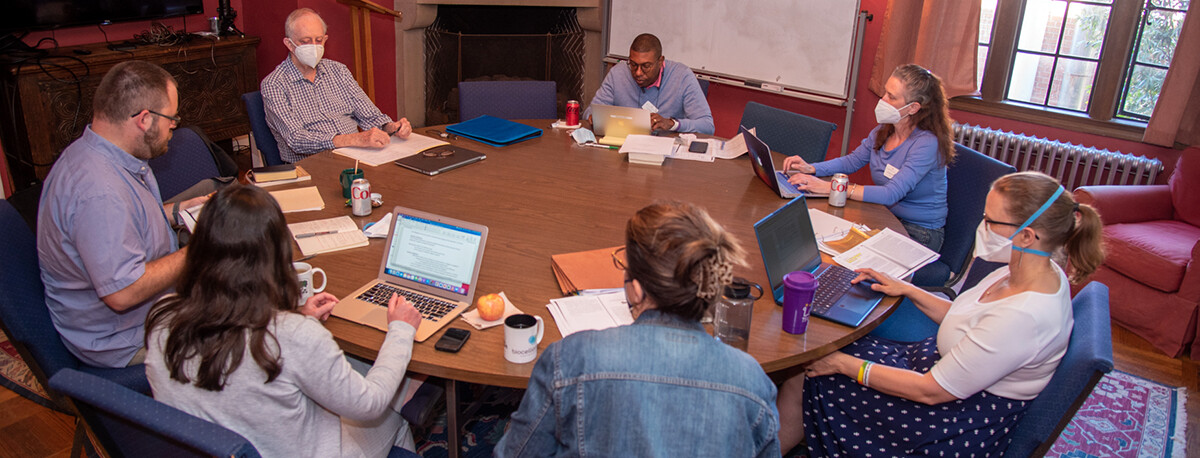Master of Divinity (MDiv)
Please note: Our MDiv curriculum is currently under revision in response to our shift to a fully hybrid educational model. More information about the revised curriculum will be available soon.
CDSP’s MDiv program offers rigorous academic and spiritual formation for people who will, in a time of religious and cultural pluralism, lead the church in participating in God’s mission, forming Christian disciples, and proclaiming the Gospel.
Successful graduates of our MDiv program can:
- Articulate a coherent theological understanding of God’s mission, grounded in Scripture and in Christian heritage, particularly in its Anglican distinctiveness as well as its ecumenical comprehensiveness.
- Demonstrate skill in contextual analysis that informs and deepens the church’s commitment to the common good in particular ministry settings.
- Gather and form Christian community, and engage Christian disciples in joining God’s mission of reconciliation, justice, and mercy.
- Articulate and embody the good news of God in Jesus Christ in coherent and compelling ways, orally, in writing, and through action, communicating the transforming power of the Gospel both within the church and in our pluralistic world.
At CDSP, students prepare for ordained ministry with a core program of study that addresses the needs and concerns of the world and the church from Episcopal Church perspectives. Students take most or all of the courses covering the six canonically required areas of study for ordination to the priesthood in the Episcopal Church at CDSP. They also take course at CDSP focusing on the core ministry leadership skills of contextual awareness, critical reflection, and public conversation.
Annual Evaluations
All M.Div. students receive three general evaluations during their program of study. The purpose of evaluations is to assist the individual student in personal and theological growth in Christian formation. One’s own maturing relationship with God through Jesus Christ is of utmost importance to the individual and to the larger Christian community which M.Div. students are preparing to serve. Because growth is continual and often difficult to describe, particular areas of a student’s seminary life are brought under careful review.
Academic skills are a major concern. That competence is partially measured by separate course evaluations provided by instructors. A knowledge of basic content and method in theological disciplines is highly important. Also important is the student’s ability to integrate different facets and areas of learning in constructive analyses of contemporary religious, social and political problems and to transmit these insights to other people.
Relational skills are another concern. Leadership, counseling, preaching, and teaching are measured by appropriate course evaluations, and also through reports from Contextual Education assignments. It is important to assess how a person’s theological understanding and commitment is manifested in all areas of the student’s life. Two such areas may be worship and family. Questions of a student’s relationship with peers and with those in authority come into focus, as does response to criticism.
In addition to the student and the advisor, the evaluative process involves Contextual Education supervisors, Faculty, Staff and the Dean. The student’s advisor presents a draft of an evaluation to the Dean and Faculty for their collegial review. This draft is drawn up after consultation with the student. The student may be asked to prepare a self-evaluation as a basis for the consultation with the advisor. Advisors have different methods of preparing evaluations. Therefore, students should discuss the process with their advisors so that there is a mutual understanding.


